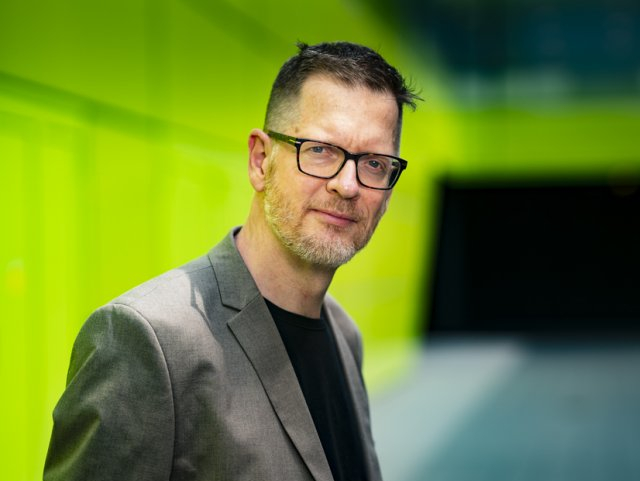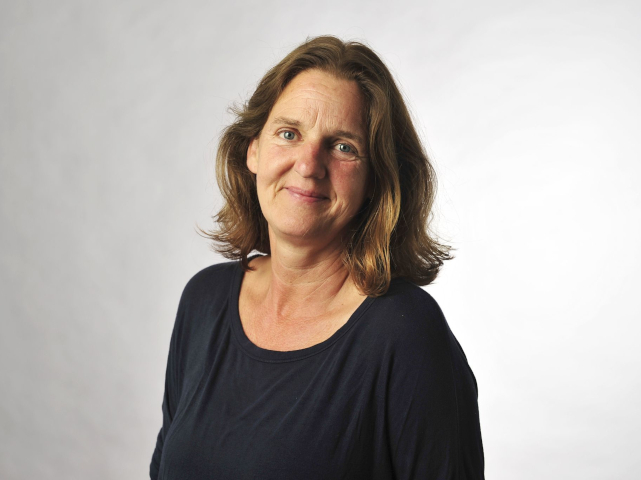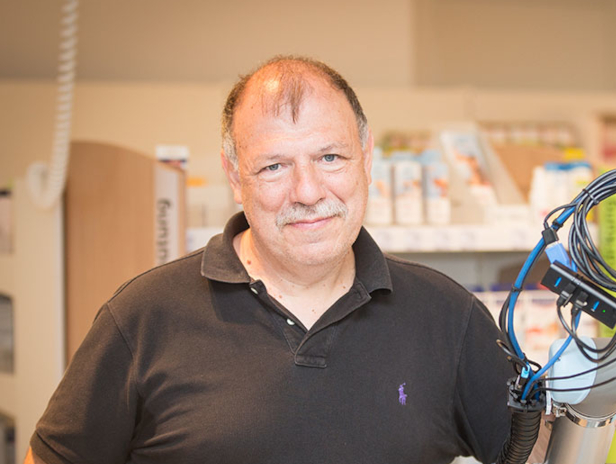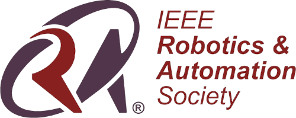About the workshop
AIC 2022 is the 8th international appointment of the International Workshop Series AIC on "Artificial Intelligence and Cognition". The AIC series started in 2013, stemming from the need of creating an international scientific forum for the discussion and the presentation of the theoretical and applied research developments in the field of cognitively inspired Artificial Intelligence.
In recent years, after a period of partial fragmentation of the research directions between the AI and Cognitive Science community, the area of cognitively inspired artificial systems has attracted a renewed attention both from academia and industry. Thus, the awareness about the need for additional research in this interdisciplinary field is gaining again widespread acceptance.
In this spirit, the AIC 2022 workshop aims at putting together researchers coming from different domains (e.g., artificial intelligence, cognitive science, computer science, philosophy, social sciences, etc.) working on the interdisciplinary field of cognitively inspired artificial systems. AIC 2022 will take place in Centre for Applied Autonomous Sensor Systems (AASS) at Örebro University, Sweden, joint with SweCog 2022, the conference of the Swedish Cognitive Science Society.
Aims and Scopes
Topics of interest for AIC 2022 include but are not limited to:
- Knowledge Representation and Cognition (e.g. Neural Networks models, Conceptual Spaces, Ontologies and representation of common sense)
- Cognitive Architectures (e.g. SOAR, ACT-R) and Cognitive modelling for Artificial Systems
- B.I.C.A. (Biologically Inspired Cognitive Architectures) and systems
- Cognitive Robotics
- Human Robot Interaction
- Evaluation of cognitively driven AI systems compared with other AI approaches
- Cognition and Semantic Web
- Methodological open questions on AI and Cognition
- Automated reasoning: deductive, probabilistic, diagnostic, causal and analogical inference
- Historical and theoretical relation among Cognitive Science and Artificial Intelligence
- Knowledge discovery and acquisition
- Modelling of human learning and knowledge acquisition in complex domains
- Computational Linguistics, Natural Language Processing & Understanding
- Logic and Reasoning
- Evolutionary Computation
- Spatial Cognition and Computation
- Cognitively inspired Machine Learning
- Computational Theories of Learning
- Computational Creativity
- Cognitive and the Moving Imag
- Computational Models of Narrative Understanding (Visuo-Auditory Narrativity, Perception, Cognitive Film Studies)
- Decision Support Systems
SPECIAL-FOCUS: AIC 2022 particularly welcomes the papers focusing on Human-Centered AI .
Paper Submission
All submissions must be written in English and must be formatted according to the information for LNCS Authors. All papers must present original work that is not currently under review. We welcome the following types of contributions:
- Full research papers (8 to 14 pages)
- Short research papers (4 to 7 pages)
- Extended abstracts of recently published journal papers (1 to 2 pages)
Full research paper submissions must describe original and completed work, where mature results
and evaluation are included.
Short research paper submissions can present a work in progress/position paper or include a
small focused contribution with preliminary results.
Extended Abstract: Authors are invited to submit an extended abstract of their recently
published journal articles within the field of AI and cognition. The original article should be accepted
and published no earlier than 2021.
Please submit your contributions electronically in PDF format via AIC 2022 Easychair. All the accepted papers will be presented orally in the workshop.
AIC 2022 - Proceedings: Accepted papers will be included in the workshop proceedings published on-line by CEUR Workshop Proceedings (CEUR-WS.org), with ISSN and submitted for indexation at DBLP. At least one author of each accepted paper must register to the workshop and attend the workshop to present the paper.Important Dates
FULL RESEARCH PAPERS:
April 1st, 2022 (extended) March 18th, 2022: Paper submissionMay 10th, 2022: Notification of acceptance
SHORT PAPERS or EXTENDED ABSTRACTS:
May 13th, 2022 (extended): Paper submissionMay 23th, 2022: Notification of acceptance
CAMERA-READY SUBMISSION:
June 3rd, 2022 at last: June 7th, 2022
WORKSHOP REGISTRATION:
June 5th, 2022 June 9th, 2022
Keynote Speakers
Committees
Organising Committee:
Program Committee
- Mehul Bhatt, Örebro University, Sweden
- Erik Billing, University of Skovde, Sweden
- Rafal Rzepka, Hokkaido University, Japan
- Antonis Kakas, University of Cyprus, Cyprus
- Oscar Martinez Mozos, Örebro University, Sweden
- Antonio Chella, University of Palermo, Italy
- Ana-Maria Olteteanu, Wellbeing AI Research Institute, Germany
- Steven Schockaert, University of Cardiff, UK
- Marjan alirezaie, Örebro University, Sweden
- Giovanni Sileno, University of Amsterdam, The Netherlands
- Jennifer Renoux, Örebro University, Sweden
- Salvatore Gaglio, University of Palermo and ICAR-CNR, Italy
- Peter Gärdenfors, University of Lund, Sweden
- Kristiina Jokinen, University of Helsinki, Finland
- Loizos Michael, Open University of Cyprus, Cyprus
- Alessandro Oltramari, Bosch Research and Technology Center, USA
- Martha Lewis, University of Amsterdam, The Netherlands
- Zoe Falomir, University of Bremen, Germany
- Christian Balkenius, Lund University, Sweden
- David Vernon, Carnegie Mellon University Rwanda, Rwanda
Schedule
AIC&SweCog 2022 Program (download as a PDF file)
June 15th
AIC Registration
AIC Opening
D1-1: AIC Oral presentations
-
D1-1-1 (aic-short: 8+2 min) [online]
Wellington Pacheco Ferreira and Walter Teixeira Junior. Toward An Artificial Cognitive System To Assist Caregivers In Decision-Making For Persons Living With Dementia [Abstract] [PDF] -
D1-1-2 (aic-short: 8+2 min)
Maurice Lamb, Estela Pérez Luque and Erik Billing. Understanding eye-tracking in virtual reality [Abstract] [PDF] -
D1-1-3 (aic-short: 8+2 min)
Valentina Fantasia, Ingar Brinck and Christian Balkenius. Making sense with social robots: Extending the landscape of investigation in HRI [Abstract] [PDF] -
D1-1-4 (aic-short: 8+2 min)
Mohamadreza Faridghasemnia. Appreciation of Symbolic Attributes in Machine Perception [Abstract] [PDF]
Coffee Break
D1-2: AIC Oral presentations
-
D1-2-1 (aic-full: 20+5 min)
Alexander Kalinowski and Yuan An. Quantifying the Impact of Predicate Similarities on Knowledge Graph Triple Embeddings [Abstract] [PDF] -
D1-2-2 (aic-full: 20+5 min)
Hiroyuki Kido. Generative Logic Models for Data-Based Symbolic Reasoning [Abstract] [PDF] -
D1-2-3 (aic-short: 8+2 min)
Andreas Persson and Amy Loutfi. Embodied Affordance Grounding using Semantic Simulations and Neural-Symbolic Reasoning: An Overview of the PlayGround Project [Abstract] [PDF] -
D1-2-4 (aic-short: 8+2 min)
Jakob Stenseke and Christian Balkenius. Assessing the Time Efficiency of Ethical Algorithms [Abstract] [PDF]
AIC Social Dinner
-
Makeriet Restaurang (Kungsgatan 3, 702 11 Örebro)
June 16th
SweCog Registration
Coffee Break
D2-1: AIC&SweCog Joint Oral presentations
-
D2-1-1 (aic-full: 20+5 min)
Joel Michelson, Deepayan Sanyal, James Ainooson, Yuan Yang and Maithilee Kunda. Experimental design and facets of evidence for computational theory of mind [Abstract] [PDF] -
D2-1-2 (aic-short: 8+2 min)
Ursula Addison. The Source of Desire: Personal Identity as a Drive for Agent Behavior [Abstract] [PDF] -
D2-1-3 (aic-short: 8+2 min)
Antero Karvonen and Pertti Saariluoma. Cognitive Mimetics - SMT Model [Abstract] [PDF] -
D2-1-4 (aic-short: 8+2 min)
Jasmin Grosinger. On Proactive Human-AI systems [Abstract] [PDF] -
D2-1-5 (aic-short: 8+2 min)
Sara Mahmoud and Alice Plebe. Road map for cognitively-inspired artificial systems [Abstract] [PDF] -
D2-1-6 (swecog: 15+5 min)
Andreas Kalckert. From rubber hands to virtual hands - A critical examination of the processes underlying bodily illusions [Abstract]
Lunch Break
D2-2: AIC&SweCog Joint Oral presentations
-
D2-2-1 (aic-full: 20+5 min)
Yuan Yang, Deepayan Sanyal, Joel Michelson, James Ainooson and Maithilee Kunda. A Conceptual Chronicle of Solving Raven's Progressive Matrices Computationally [Abstract] [PDF] -
D2-2-2 (swecog: 15+5 min)
Joel Parthemore Artefactual ethics as opportunity for rethinking "natural" ethics [Abstract] [PDF]
D2-3: AIC&SweCog Elevator Pitches of Posters
-
D2-3-1 (swecog: 2 min)
Andreas Falck and Janne von Koss Torkildsen. The leader learns it all? Using the “Kaptein Morf” tablet game to examine how different roles in joint problem solving affect learning [Abstract] -
D2-3-2 (swecog: 2 min)
Anders Persson. What is Reason in the age of Artificial Intelligence and predictive processing? [Abstract] -
D2-3-3 (swecog: 2 min)
Emma Mainza Chilufya. The Design of Intelligent Virtual Agents Using User-Centered Design Methods [Abstract] [PDF] -
D2-3-4 (swecog: 2 min)
Anna Persson. The role of prior experience in understanding speech: computational and experimental approaches to vowel perception [Abstract] -
D2-3-5 (swecog: 2 min)
Philip Gustafsson. Vocal Characteristics predict Accuracy in Eyewitness Testimony [Abstract] -
D2-3-6 (swecog: 2 min)
Alexander Tagesson. Do objective judges become emotional? [Abstract] -
D2-3-7 (swecog: 2 min)
Maybí Morell Ruiz. What do our eyes say about our estimation strategies? [Abstract] -
D2-3-8 (swecog: 2 min)
Oscar Bjurling. Human Interaction with Autonomous Drone Swarms: Design and control challenges [Abstract]
Coffee Break + Poster Session
AIC&SweCog Joint Poster Session
AIC&SweCog Joint Reception with Light Food
- At: Fikarum, Teknikhuset
June 17th
D3-A1: AIC Oral presentations (parallel session, Hörsal T)
-
D3-A1-1 (aic-full: 20+5 min)
Agnese Chiatti, Gianluca Bardaro, Enrico Motta and Enrico Daga. Commonsense Spatial Reasoning for Visually Intelligent Agents [Abstract] [PDF] -
D3-A1-2 (aic-full: 20+5 min)
Vedran Galetic and Alistair Nottle. Inherently Interpretable Knowledge Representation for a Trustworthy Artificially Intelligent Agent Teaming with Humans in Industrial Environments [Abstract] [PDF] -
D3-A1-3 (aic-short: 8+2 min)
Erik Jergéus, Leo Karlsson Oinonen, Emil Carlsson and Moa Johansson. Towards Learning Abstractions via Reinforcement Learning [Abstract] [PDF] -
D3-A1-4 (aic-short: 8+2 min)
Richard Scherl. A situation-calculus based model of linguistic context [Abstract] [PDF]
D3-S1: SweCog Oral presentations (parallel session, Room T101)
-
D3-S1-1 (swecog: 15+5 min)
Pierre Gander. What kind of memory is memory of fiction? [Abstract] -
D3-S1-2 (swecog: 15+5 min)
Leonard Ngaosuvan. Cognitive bias in social services CPS case argumentation [Abstract] -
D3-S1-3 (swecog: 15+5 min)
Linus Holmberg. Sexual Economics in Swedish Dating: Pity Poor Men [Abstract]
Coffee Break
D3-2: AIC&SweCog Joint Oral presentations
-
D3-2-1 (aic-full: 20+5 min)
Yann Munro, Isabelle Bloch, Mohamed Chetouani, Marie-Jeanne Lesot and Catherine Pelachaud. Argumentation and Causal Models in Human-Machine Interaction: A Round Trip [Abstract] [PDF] -
D3-2-2 (aic-full: 20+5 min)
Stevan Tomic. Towards Robotic Minds: Dynamic Interpretation and Schemata Recombination [Abstract] [PDF] -
D3-2-3 (aic-short: 8+2 min)
Tosin Adewumi, Foteini Simistira Liwicki and Marcus Liwicki. Exploring Swedish & English fastText Embeddings [Abstract] [PDF]
AIC Closing
Lunch Break
D3-3: SweCog Oral presentations
-
D3-3-1 (swecog: 15+5 min)
Magnus Johnsson. Human-Centered AI for Personalization in Experiential Learning Environments [Abstract] -
D3-3-2 (swecog: 15+5 min)
Andreas Falck. Online filters and social trust: why we should still be concerned about Filter Bubbles [Abstract] [PDF] -
D3-3-3 (swecog: 15+5 min)
Amandus Krantz. The Crisis of Trust in AI and Autonomous Systems [Abstract] [PDF] -
D3-3-4 (swecog: 15+5 min)
Raphaël Fargier. The influence of contextual variability on learning novel words: Does the type of variability matter? [Abstract]
SweCog Closing
Registration
Registration is closed!
The deadline for registration is June 5th, 2022 June 9th, 2022
Types of Registration:
| Participation | Fee (SEK) | +25% VAT |
|---|---|---|
| - On-site Participation | 1500 SEK |
Swedish university: no
Other: yes |
| - On-site Participation, Student | 1000 SEK |
Swedish university: no
Other: yes |
|
- AASS Staff (researchers and students) and
- SweCog members |
750 SEK | no |
| - Online Participation | 500 SEK |
Swedish university: no
Other: yes |
Before going forward with the registration, please note that:
- 25% VAT is excluded from the registration fees (for non-swedish state payments).
- The cost of the social dinner activity on 15/6 is included.
- In case of cancellation, there will be no refund.
- The workshop fee can be paid with credit card or invoice to Swedish state universities/authorities. But only credit card payments for others.
- IMP: Accepted papers will be included in the proceedings only if at least one author is registered!
Registration is closed!
If you have any questions regarding the registration, please contact Elin Sandberg (elin.sandberg@oru.se)
Closed!
Registration Form and Payment
Venue
Hörsal T, Teknikhuset, Örebro University, Örebro, Sweden
-
Getting to Örebro University: (Buses, and Walkway to Campus Örebro, Map of Campus, etc.)
More information with links and QR code: here (PDF) -
General Information: (WiFi, Restaurants at Campus Örebro, Taxi, etc.)
More information with links and QR code: here (PDF) -
Walkway from University bus stop (Universitetsplatsen) to Hörsal T, Teknikhuset (~7 min): direction
-
Walkway from Hörsal T to Restaurang KRAKA: direction





























